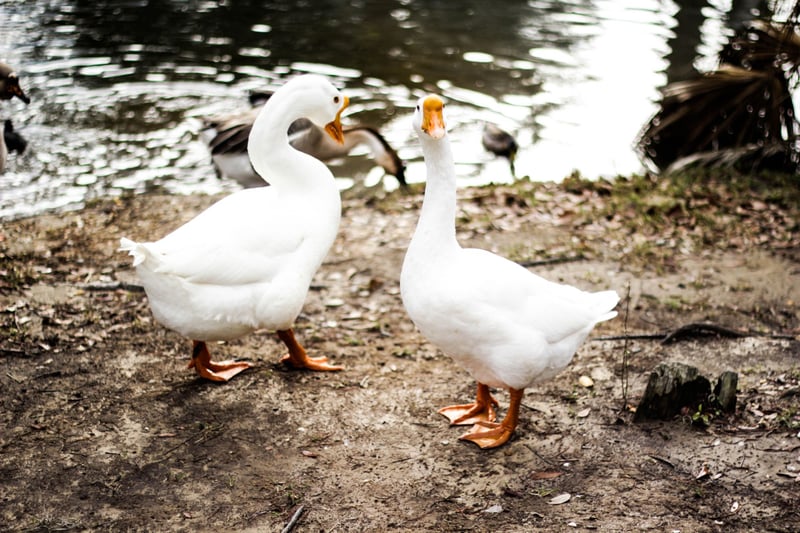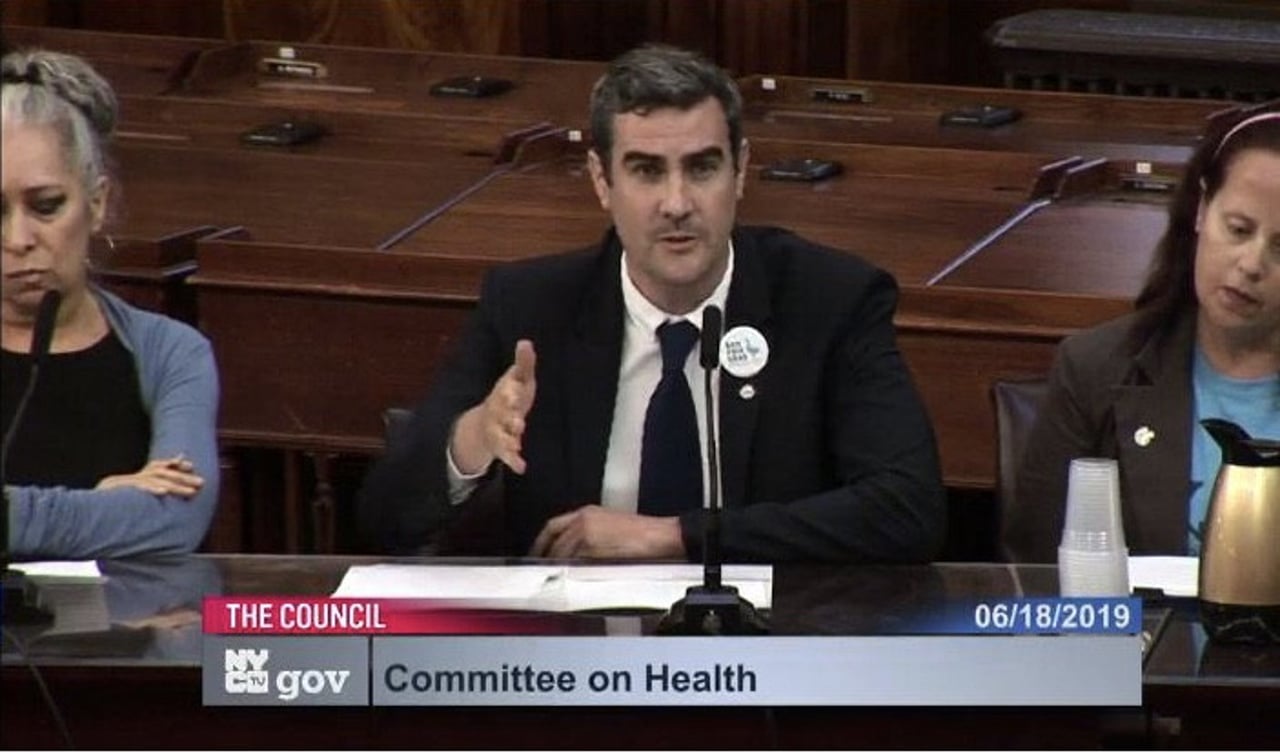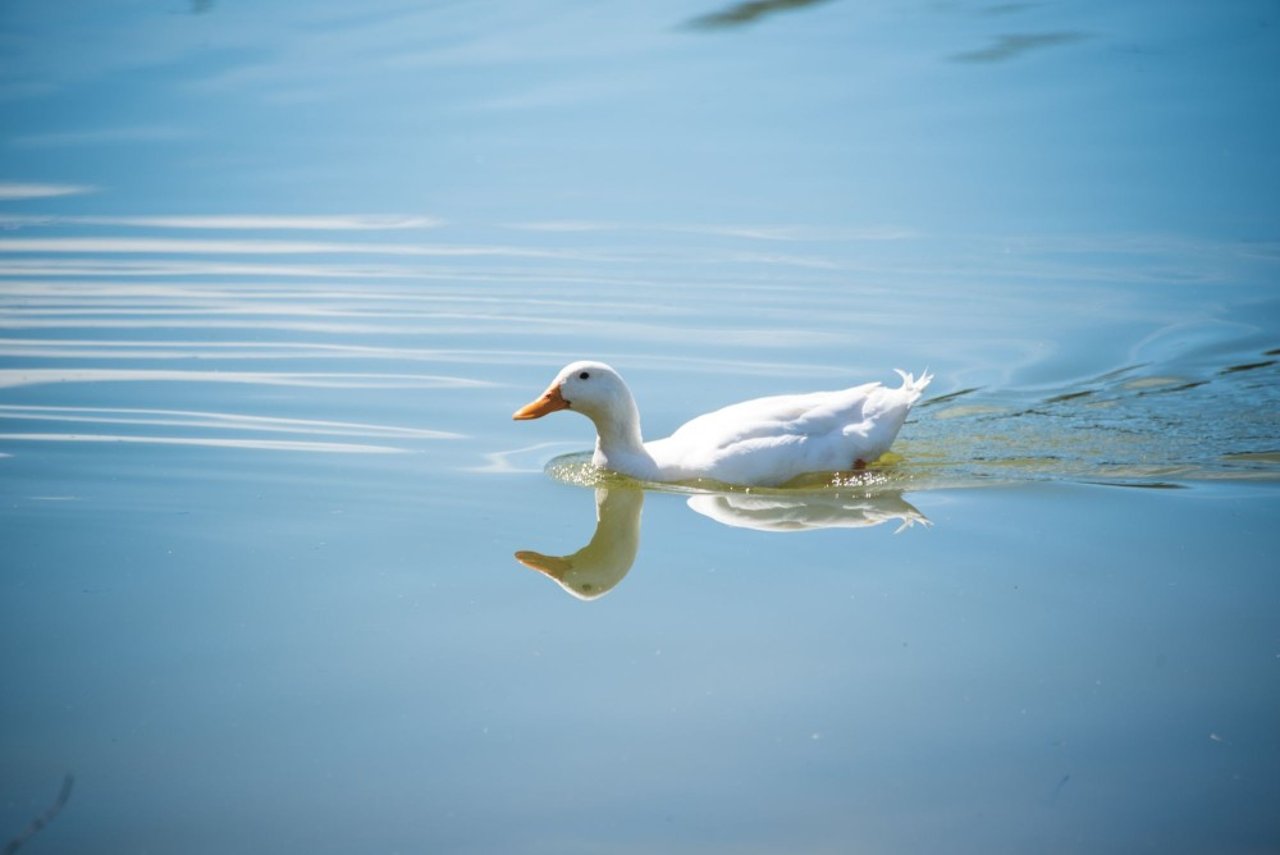
Today, the New York City Council voted overwhelmingly to adopt a ban on the sale and provision of foie gras within city limits.
Intro 1378, as it is known, is supported by a Voters For Animal Rights-led coalition of over 50 not-for-profit organizations and 81 percent of New York City voters, according to a Mason Dixon poll. It will now go to Mayor Bill di Blasio for signing.
I testified in front of the City council back in June explaining how there can be no such thing as “humane foie gras”.
Foie Gras (pronounced ˈfwä-ˈgrä)—French for “fatty liver”—is a gruesome luxury food product made from the diseased and enlarged liver of a duck produced through force-feeding. Ducks abused by the foie gras industry suffer immensely from ruptured organs, esophagus trauma, broken bones, illnesses, and diseases as a result of having a foot-long metal or plastic pipe shoved down their throats and a large mass of food injected into their delicate digestive system several times a day for weeks. The sole purpose of this barbaric force-feeding is to swell and disease the bird’s liver to ten times its normal size so it can be sold as foie gras.
Over the course of my life I have seen several eye-witness videos of foie gras farms, including one exposé of Hudson Valley Foie Gras in New York. I have seen birds who can hardly move being roughly handled and force-fed birds with labored breathing, panting constantly as their diseased livers press against their lungs. The birds not restricted by cages or broken legs are seen desperately attempting to flee the farmer’s force-feeding machine.
Mortality rates during the force-feeding process are typically 10-20 times higher than in non-force-fed birds. If the birds were not slaughtered when they are, it is generally accepted that they would die from the effects of force-feeding, from failure of liver function.
The European Union’s Scientific Committee on Animal Health and Animal Welfare concluded in 1998 that force-feeding, as currently practiced, is detrimental to the welfare of the birds.” The Food and Agriculture Organization of the United Nations stated in 2002 that the production of fatty liver for foie gras “raises serious animal welfare issues and is not a practice that is condoned by FAO”.
Virtually all veterinarians and avian experts agree there is no ethical way to produce foie gras. The level of pain and discomfort that birds raised on foie gras farms must endure cannot be justified for any fleeting moment of taste.
Today’s bill sees New York City follow in California’s footsteps, which saw a ban finally implement this year after more than a decade of judicial appeals.
But it also represents a new paradigm of conscientious legislators ending the worst forms of animal cruelty in our food system. Just as we continue to march on with anti-confinement initiatives from state to state, I expect that foie gras will soon become an unobtainable relic of a less kindly time.

